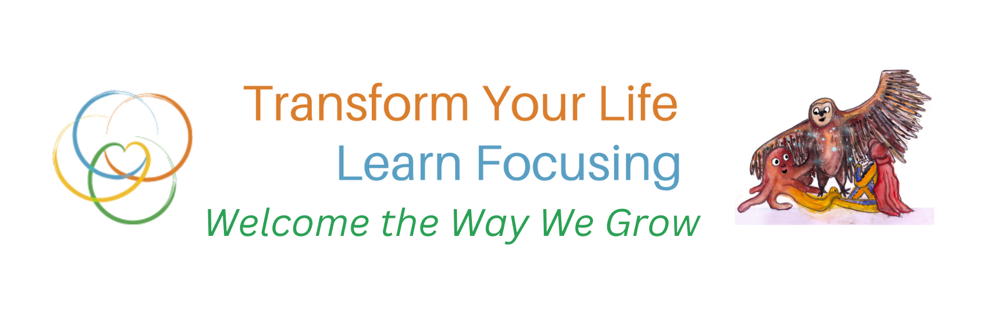Transform Your Life, Learn Focusing, Welcome the Way We Grow
Exploring “The Essence of Focusing" - PART 1
Posted on
NEWS! NEWS! NEWS!
Posted on
Wherever you go, wherever you are, whatever season you are in, take your Focusing skills with you! With this newsletter, we have some good news about brand new digital resources that go anywhere any time!
Symphonic Reflecting Through Group Felt-Sensing
Posted on
The surprising power of group listening and reflecting, even when the speaker is not Focusing.
Focus on Accomplishments
Posted on
Here is our blog post for May 2, 2025, entitled “Focus on Accomplishments,” by Barbara Dickinson. In this blog post, we start a discussion of accomplishments, how to track them, how to celebrate them, how to use them to boost self esteem, and how to recognize in them the positive impact we have on others.
Accelerated Group Learning Through Felt Sensing - A way to teach and learn new realms of sensing capacity with a group or class
Posted on
Having a group felt sense together and share what comes to them can create a very deep and accelerated learning environment.
"Focusing Happens!"
Posted on
This is the introductory post to a series on expanded applications of Focusing.
When we start with the understanding that Focusing is a natural process, facilitated when certain conditions and environments are present, we can use this understanding and our Focusing skills in many areas outside of self-help and personal growth.
“Something is Happening Inside Me!” - How Interactive Focusing relates to Social and Emotional Learning
Posted on
"Inside-Me Stories" is a valuable tool for teaching children the skills they need to navigate the social and emotional challenges of life. By learning to understand and express their emotions, children can build stronger relationships, improve their communication skills, and develop a greater sense of self-awareness and self-esteem. The book's focus on experiential learning and its use of interactive storytelling make it a fun and engaging way for students to learn social and emotional skills.
How Does Focusing Lead to Action
Posted on
To bring movement, practice movement. I invite you to explore some of these movements if you are looking for ways to practice embodiment of small action steps from your Focusing process.
We're in This Together
Posted on
"We're in this together' is a favorite phrase in how I self-mentor my inner space. It developed and strengthened as I wrote Smartview Stories books where I experience it as a useful way of expressing the elemental "Being With" essence of Ashamaya, the Inner Companion representing our larger self. We're in this Together. This is easy to say. Important are the qualities of being we ARE when we say these words. Most of our world cultures encourage fast responses. As much as I naturally prefer a slower pace and more space, I've also found myself easily swept along juggling life's daily demands best I can. For much of my life, when my fast juggles crashed, I would first find a friend...
Update on “Sundays with Gene - A Memoir” - Help for Helpers Presentation
Posted on
Here is our blog post for December 25, 2024, entitled Update on “Sundays with Gene - A Memoir” Help for Helpers Presentation, by Barbara Dickinson
By the very kind invitation of Lynn Preston’s “Help for Helpers,” Barbara gave a presentation recently about the Memoir. You can find the video of that presentation on the Help for Helpers Channel on YouTube.
Quick links
Social Links
Explore Focusing experiences with our Learn Focusing community of writers on Substack.
JOIN our public Facebook Group for people interested in Focusing HERE.
LIKE our Learn Focusing Facebook page HERE.
SUBSCRIBE to our YouTube channel for more content HERE.
Sandy Jahmi Burg
540-552-0203
sandyjahmi@gmail.com
Floyd, Virginia
**Learn Focusing is certified as a Small, Women Owned Business in the Commonwealth of Virginia.
*DISCLAIMER*
This site does not provide medical or any other health care or fitness advice, diagnosis, or treatment. The site and its services are for informational purposes only and are not a substitute for professional medical or mental health advice, examination, diagnosis, or treatment.
